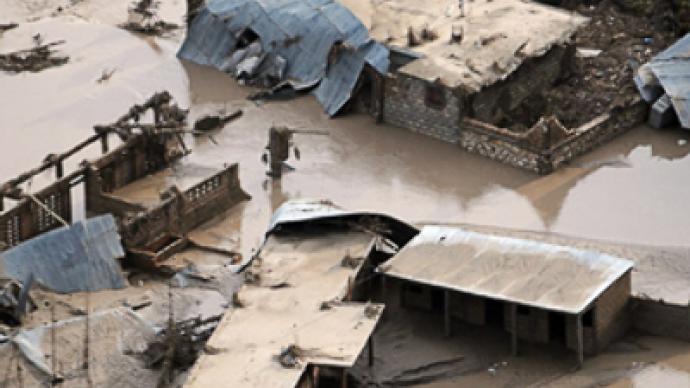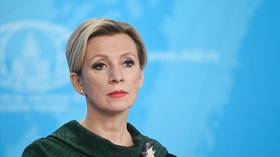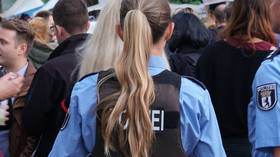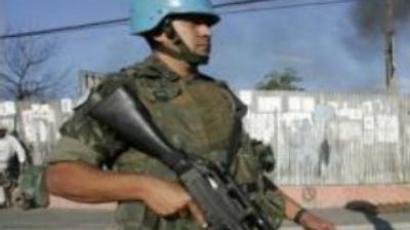Donors given vaunted view of Haitian security

As the UN gives out a message of Haitian hope and security to international donors, the ravaged island’s people prepare to vote under a shroud of police killings and kidnappings.
The international community has turned its focus on the impoverished Caribbean island. A high-ranking delegation has arrived, led by UN Secretary General Ban Ki-Moon and accompanied by former US President Bill Clinton.
The awareness-raising trip (March 9-10) is designed to instill hope and bring in more international aid. The UN claims its 9,000 troops, police and civilians have brought security ‘to an acceptable level’ to the troubled island and this is the time for donors to increase support. The UN mission is now bullish about the current ‘winnable’ security situation.
Additionally, a UN Security Council delegation arrives on March 11.
Last week, the World Bank announced that it had made a $5 million donation to repair schools damaged in 2008’s four devastating hurricanes, which killed 800 people and forced the island further into poverty.
While the UN’s appraisal of the security situation may be overoptimistic, there is no doubt that Haiti needs international assistance. The UN visits are a precursor to April’s Haiti donors’ conference in Washington. The government of the poorest country in the western hemisphere is seeking $3 billion in aid to pay for a poverty-reduction program, which has been approved by the World Bank.
Other international observers of Haiti have raised issues over Haiti’s state institutions and the security situation. This week, Amnesty International launched a petition against the high rate of sexual violence against young women on the island. Many of the offenders are reported to be police officers.
The government and police of Haiti were heavily criticized in a human rights report by ReliefWeb, which is administered by the UN Office for the Coordination of Humanitarian Affairs. They listed unlawful killings and kidnappings by the Haiti National Police (HNP), and severe corruption in all branches of the government, among the problems facing the Haitians.
If international aid is to be useful, Haiti requires political stability. However it is on the edge of a political crisis with the upcoming Senate elections, scheduled for April 19. Former President Jean-Bertrand Aristide’s main opposition party has not been allowed to participate in the elections. Five years after fleeing to South Africa, the former Catholic priest still has a large presence in Haitian politics.
The Provisional Electoral Council (CEP) has disqualified the party’s candidates from the parliamentary elections on the grounds its national representative, Aristide, had not sanctioned them.
Lavalas supporters argue that preventing Haiti’s largest opposition party from participating is designed to protect President René Préval’s government.
In Aristide’s absence, his once all-powerful Fanmi Lavalas party is split several ways over who should be its leader. Three separate factions of the party have entered their own lists of candidates to the CEP.
Thousands of Aristide supporters marched to the CEP office in the capital Port-au-Prince on Saturday (March 1) to recognize the fifth anniversary since he was forced into exile. They demanded his return and the inclusion of Lavalas in the election.
The political stability on which to base the UN’s recovery plans look illusive.
Jonathan Stibbs for RT













